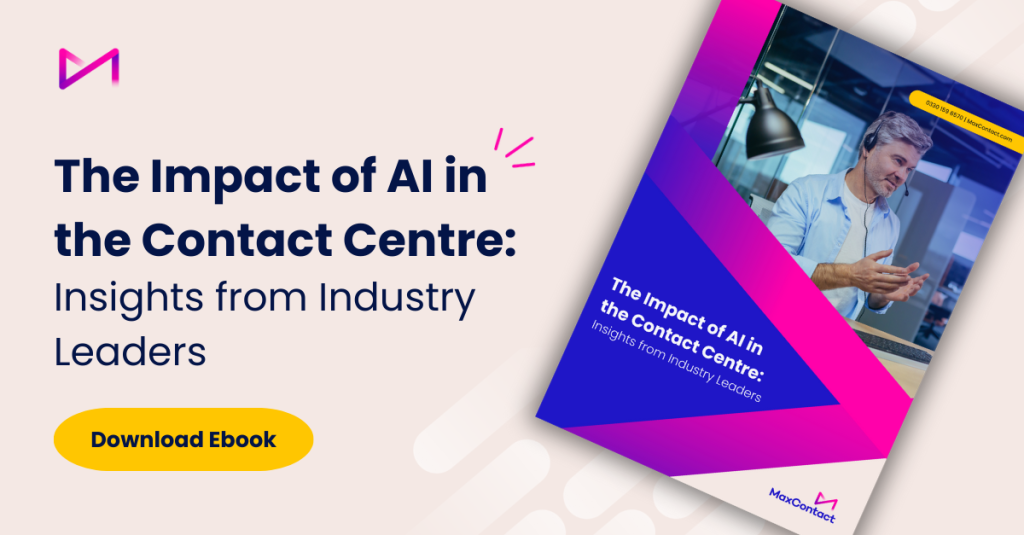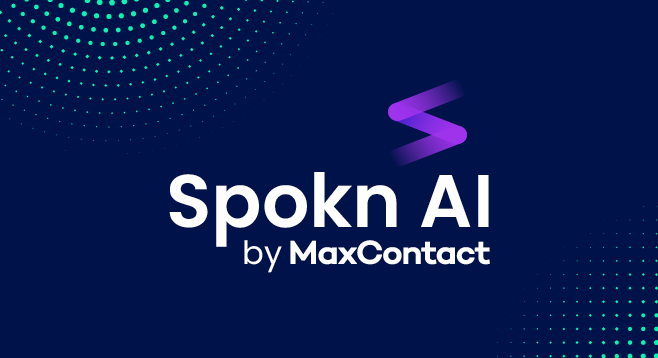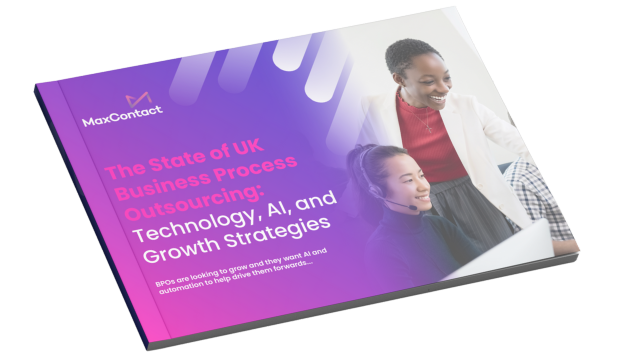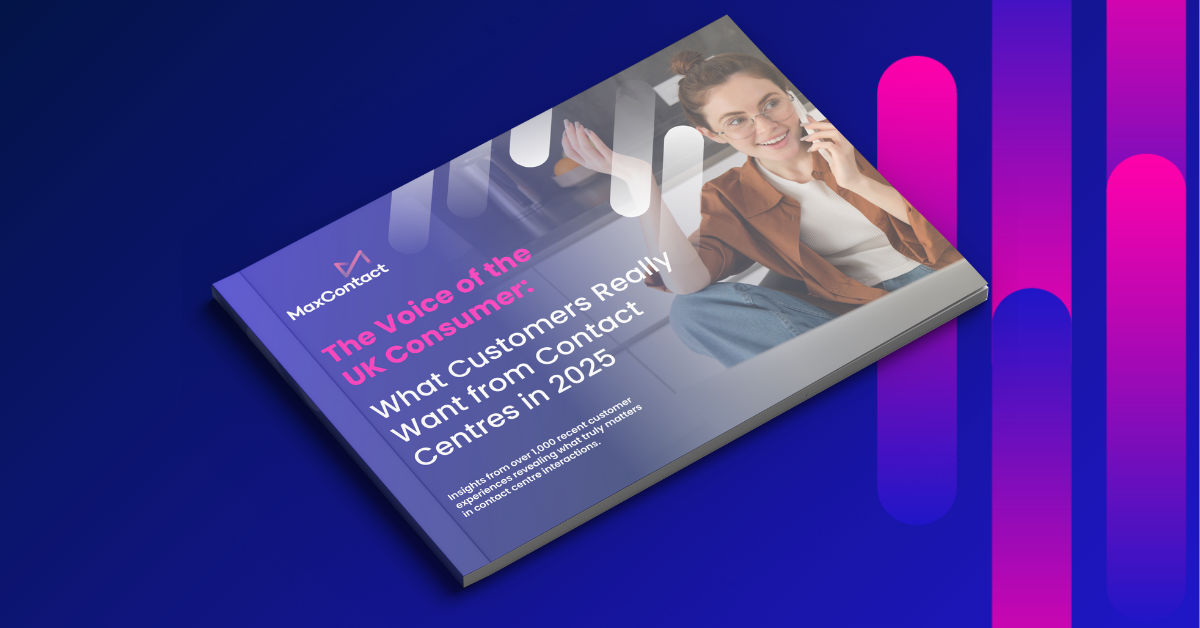Contents
We caught up with Ben Booth, CEO of MaxContact, Matthew Yates, VP of Engineering at MaxContact, and James Revell, Director of Whistl Contact Solutions to discuss the transformative impact of artificial intelligence (AI) in the contact centre. In this blog, taken from the rich discussion in a previous webinar, we explore the meteoric impact AI is having on customer experience and contact centres. We’ll look at the explosion of interest in AI over the past 12 months, why businesses can’t afford to ignore it, and what the future may hold as these lightning-fast technological shifts unfold.
The Dawning of a New Era
We are undeniably in an era of rapid advancement for AI and machine learning. From chatbots to speech analytics, AI-driven technologies are evolving quicker than ever before – and the customer experience landscape is being fundamentally reshaped as a result.
According to recent research, worldwide annual spending on conversational AI for contact centres is predicted to rise substantially by 15% to $18.6 billion in 2023 alone. These staggering stats make it clear that AI-powered solutions are the future for many businesses across all industries. Those who embrace AI with a robust strategy and an eye toward human collaboration will gain a competitive edge.
Automation for Efficiency, Insight for Innovation
For customers, AI promises highly personalised, consistent, and always accessible service. As Matthew Yates, VP of engineering at MaxContact, noted, “AI can help understand the intent behind customer questions, and it can do two or many more things like instantly fast-track consumers to an agent trained to solve my specific issue. Or if I’m a caller with a simple query who wants it resolved as quickly as possible, I can speak to an AI chatbot.”
For agents, AI eliminates the most tedious and time-consuming administrative tasks, freeing them up to focus on more complex interactions. And for businesses, conversational AI unlocks invaluable data insights to spot trends and opportunities for optimisation.
AI-powered systems are already spurring exciting developments across the board:
• Automated identity verification and intent detection can fast-track customers to the right solutions without lengthy wait times or repetition of information.
• Real-time call summarisation with metadata tagging equips agents with instant case notes and critical context on each interaction.
• Aggregate data analysis allows managers to quickly identify changes in contact drivers and agent performance over time. When applied strategically alongside human skills and abilities, AI promises to optimise efficiency, consistency, innovation and more across the entire customer journey.
But it is not a silver bullet…
The Perils of Viewing AI as a Silver Bullet
In the pressure cooker environment that many companies find themselves in today, there is a very real risk that AI could be viewed as a quick fix, a silver bullet to instantly solve all business problems.
As Ben Booth, CEO of MaxContact, cautioned, “There is a bit of an arbitrage around AI’s neck currently.” The reality is never so simple. Automating certain emotional interactions – like debt negotiation calls – may increase efficiency but lacks human empathy. Overuse of AI without careful consideration for collaboration with human agents is likely to cause backlash from frustrated customers.
As Booth emphasised, while AI cannot match the innate human abilities to build rapport, interpret emotion, and creatively problem-solve in real-time, there are “always improvements in overall customer experience, but also agent and business efficiencies.”
Contact centres must work to find the balance between AI and human interaction. This means mapping AI to appropriate use cases where it excels while retaining readily available human touchpoints for addressing complex queries. Those contact centres that embrace AI as an optimisation tool rather than an outright replacement are far more likely to unlock its full potential.

The Future Role of The Human Agent
Will the explosion of AI spell the end for the contact centre agents? Our webinar panel unanimously agreed this is highly unlikely. However, the role of agents will inevitably need to adapt and evolve along with advancing technology. As James Revell, Director of Whistl Contact Solutions, noted, AI technology, such as speech analytics, will allow each agent to “get up to speed faster” by providing “real-time knowledge appropriate to the conversation.” It is expected that up to 70% of current repetitive tasks could be automated by 2030, freeing agents to focus purely on high-value customer interactions. This transfer of mundane responsibilities to AI assistants broadly signals positive news for employees. Rather than displace human roles, AI should augment inherently human strengths like emotional intelligence, judgement calls and creative problem-solving.
However, dealing exclusively with the most challenging issues may take an additional toll on agent well-being even as routine matters are automated. This demands more significant consideration from employers around updated training, coaching, incentives, scheduling, stress management and more to keep human agents positively engaged as automation expands.
With proper change management, cultural integration, and updated skill-building, forward-looking contact centres can empower their people and technologies to collaborate and combine forces for exceptional customer and employee experiences. The agents of the future will not be replaced outright by machines but rather continually reinvented.
Navigating the Road Ahead
From data analytics to automated self-service interactions to enhanced human performance, it’s clear that AI harbours the nearly boundless potential to transform contact centre operations. But to build sustainable success, the companies that thrive will be those that embrace AI as an optimisation tool rather than a replacement for existing roles. This winning strategy plays to the strengths of both intelligent machines and thoughtful people skills.
While the benefits may be profound, rapid AI advancement also raises pressing challenges around ethics, security, privacy and compliance. Legal and regulatory frameworks are struggling to keep pace with such fast-moving technological innovation. There are likely growing gaps that urgently need addressing regarding social impacts, transparency, accountability and more as AI permeates existing business processes. Both private companies and public policymakers need to work diligently to get ahead of these rising challenges.
In the meantime, contact centres must take stock of their unique responsibilities today. This means thoroughly vetting any AI systems to safeguard against issues like bias or misuse of customer data. It also requires open, transparent communication with staff to cover intended AI applications and how their roles may need to adapt. Like any transformation, success will be determined not merely by the technology itself, but rather by the thoughtfulness of the associated change management and cultural integration.
The Future Remains Bright
In closing, the future remains exciting. Conversational AI still has a vast, largely untapped scope to transform operations through human and machine collaboration. But sustainable success lies in integrating human intelligence and artificial intelligence in a responsible, ethical and supportive fashion.
The metaphorical butterfly effect is already in motion today, with much greater change still to come across industries. Contact centres have an opportunity to lead responsibly and realise monumental gains for customers, employees and their broader communities alike if they navigate wisely.
To find out more about how MaxContact can support your contact centre’s AI journey, get in touch with our team here.






